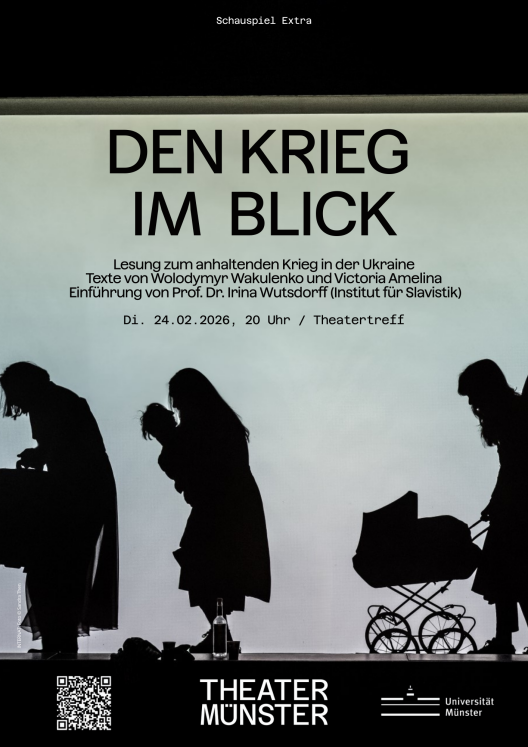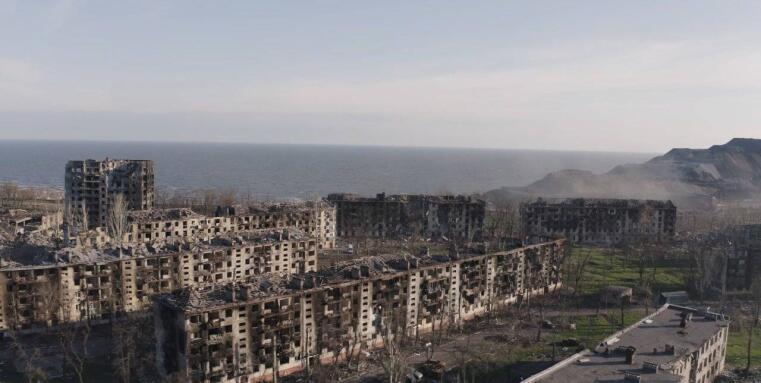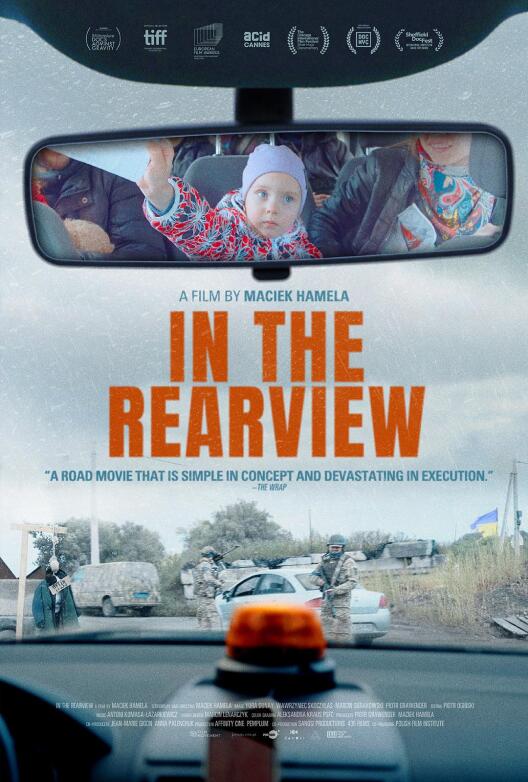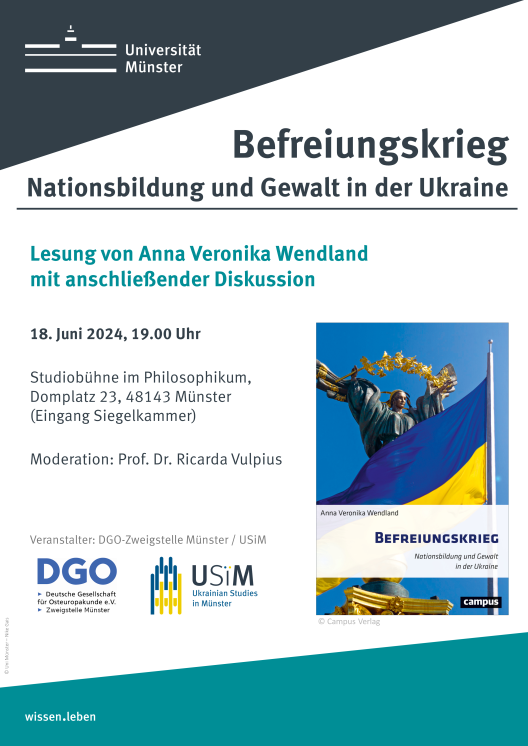

The war in focus

‘Since 24 February 2022, I have transformed myself from a writer to a researcher of war crimes, and then learned to be both, so that I can tell you, the world, the story of Ukrainian civil society's search for justice,’ wrote Victoria Amelia.
In light of the ongoing war of aggression in Ukraine, the theatre ensemble reads from the works of two authors who have recorded their observations for the world.
Readings are taken from ‘I Am Transforming’ by Ukrainian writer Volodymyr Vakulenko. In these personal notes, Vakulenko records his experiences in Russian-occupied Kapytoliwka. The last entry is dated 21 March 2022. In September 2022, after the liberation of the Izium region, his body was found in a mass grave. The writer Victoria Amelina found the notes buried in the garden next to a cherry tree and published them.
In ‘Looking at Women: Looking at War,’ Victoria Amelina accompanies female journalists, human rights defenders, and lawyers who document Russian war crimes, and describes her own transformation from author to activist. In June 2023, she was killed by a Russian missile.
The event will take place on 24 February 2026 at 8 p.m. to mark the anniversary of the start of Russia's large-scale attack on Ukraine and is part of the City of Münster's Ukraine Days.
Tickets can be purchased at the theatre box office or online.
Students can attend the event free of charge with their Kultursemesterticket.
The event will take place at the Theatertreff, and seating is unreserved.
'Russische Spezialitäten' [Russian Specialities]

Moderator: Dr Valentin Peschanskyi (Slavic Studies, University of Münster)
11 September 2025, 7 p.m.
Akademie Franz Hitze Haus, Kardinal-von-Galen-Ring 50, 48149 Münster
‘Since the war, I have no idea what language actually is ... I carry a language within me like a crime, and yet I love it, despite all the guilt.
In his deeply political new novel “Russische Spezialitäten” (Russian Specialities), Dmitrij Kapitelman writes about family and the (im)possibility of understanding in times of old and new wars: a family from Kiyiv sells “Russian” specialities in Leipzig. Vodka, pelmeni, SIM cards, sailor shirts — and an Eastern European “sense of belonging”. But the latter has been unavailable since Russia's invasion of Ukraine. The mother stands by Putin. And her son, who loves no language more than Russian, no person more than his mother, but also no city more than Kiyiv, despairs at this situation. It is not wise of him to return to Ukraine in the middle of the war. But what else can he do when there is no other way to bring his mother back from fascism and the lies on Russian television? Today he works as a freelance journalist. In 2016, his first successful book, “Das Lächeln meines unsichtbaren Vaters” (The Smile of My Invisible Father), was published, for which he won the Klaus-Michael Kühne Prize. This was followed in 2021 by “Eine Formalie in Kiew” (A Formality in Kiyiv), for which he was awarded the Ravensburger Verlag Foundation's Family Novel Book Prize. Dmitrij Kapitelman has read from both novels at the Franz Hitze Haus Academy in recent years.
A joint event organised by the Franz Hitze Haus and the Institute of Slavic Studies at the University of Münster.
Registration and programme
The Lives of Secret Soviet Agents. Religion and Police Survaillance in the USSR

When internationally recognised experts gathered for an online symposium in October 2021 to discuss the infiltration of religious organisations by the secret services in the Soviet Union, none of them had any idea that their lives would soon change radically. In February, Russia invaded Ukraine, changing the work of historians from Ukraine, Kazakhstan, Latvia, Russia, Germany and Ireland in profound, albeit different, ways. It is therefore nothing short of a minor miracle that this collection of essays has seen the light of day.
The texts collected here are based in part on untapped KGB archives and shed light on the surveillance of religious actors. Dr Vitalij Fastovskij from the University of Münster will discuss the Lives of Others in the Soviet Union with Dr Nadezhda Beliakova from the University of Bielefeld, Philipp Schwarz Fellow and co-editor of the volume, and Prof. Dr Katya Tolstoj from Vrije Universiteit Amsterdam, author of the afterword.The event is organised by the Department of Eastern Church Studies and Ecumenism (Prof. Dr. Regina Elsner), the Department of Eastern European History (Prof. Dr. Ricarda Vulpius) and the Cluster of Excellence Religion and Politics.
When: 18 June 2025, 6 p.m.
Where: Johannisstr. 4, Room J 101, University of Münster

In the short, fertile period after the First World War, the literary landscape of Ukraine included a circle of poets who, committed to the classical European heritage, described themselves as neoclassics. The German-Ukrainian Oswald Burghardt, alias Jurij Klen, is one of them - along with Maksym Ryl's'kyj, Pavlo Fylypovyč, Mykola Zerov and Mychajlo Draj-Chmara. With the anthology Poetry of the Damned (bilingual German and Ukrainian), which has now been published for the first time, Burghardt wanted to memorialise his companions in 1947. The book has now been edited by Nataliia Kotenko-Vusatiuk and Andrii Portnov in a co-operation between the German Cultural Forum for Eastern Europe and Arco-Verlag. Oswald Burghardt worked as a lecturer for Russian and Ukrainian at the University of Münster from 1934 to 1942. His teaching duties were subsequently taken over by his sister Josefine.
The panel discussion with Nataliia Kotenko (Ukrainian Studies) and Prof. Dr Andrii Portnov ( Historical Studies) and Dr Katharina Biegger (German Studies) will be moderated by Dr Klaus Harer (German Cultural Forum for Eastern Europe). Members of the Münster theatre ensemble will read poems from the anthology in Ukrainian and German. A cooperation event between the Institute for Slavic Studies at the University of Münster and the German Cultural Forum for Eastern Europe and the Münster Theatre.

Events in Münster to mark the 3rd anniversary of the large-scale Russian attack on Ukraine

24 February 2025 marks the third anniversary of the large-scale Russian attack on Ukraine. To ensure that this date, and with it the horrors to which the people of Ukraine have now been exposed for three long years, do not get lost in the German election campaign, a broad alliance of various organisations and institutions is marking this day in Münster with a series of events.
In the days leading up to the anniversary, a public rally in front of the historic town hall on 22 February will draw attention to the fact that the war in Ukraine is also a serious challenge for our Western democracies and also remind us that the fighting there has been going on since 2014.
11 a.m. to 1 p.m., title: ‘Defence of democracy in Europe. 11 years of war in Ukraine.’
Afterwards, you can head to the neighbouring public library, where the artists' collective “Vierwärts” will be reading excerpts from Oxana Matiychuk's “Ukrainian Diary” starting at 3 pm. More information can be found further down on this page.
On Sunday, 23 February, a Ukrainian service will be held in the Überwasserkirche at 3 pm, followed by a candlelight procession.

A comprehensive programme has been put together for the anniversary itself, in which the Institute of Slavic Studies at the University of Münster is involved twice:
At 16:45, the Schlosstheater will be showing the documentary film ‘In the Rearview’ by Maciek Hamela, which portrays the experiences of a Ukrainian family fleeing the war. An event organised by the City of Münster in cooperation with the associations Ukrainian Language and Culture in Münster, UAre Greven and the Institute for Slavic Studies.
Two events will take place at 8 pm:
Firstly, a church service with an ecumenical prayer for peace in the Heilig-Kreuz-Kirche.
Secondly, there will be a reading from Serhij Zhadan's new volume of poetry ‘Chronik des eigenen Atems - 50 und 1 Gedichte’ in the Theatertreff, to which Prof. Dr Irina Wutsdorff will give an introductory lecture. The play will be read by the Münster Theatre ensemble. Serhij Zhadan writes that it was to be yet another volume of poetry about the eastern landscape in winter, the approaching snow, the voices in the air, the vineyards, the city on the horizon filling with noise and light. But on 24 February 2022, with the large-scale invasion, time stopped and the poetry fell silent. Only months later did language return: ‘Time to write new poems / No one cries anymore with the old ones.’
Reading from the ‘Ukrainian Diary’ by Oxana Matiychuk

On Saturday, 22 February 2025 at 3 pm, the artists' collective Vierwärts is organising a reading from the “Ukrainian Diary” by our project partner from the University of Czernowitz, Oxana Matiychuk, in the reading room of the Münster City Library.
The artists' collective Vierwärts was founded spontaneously after the Russian attack on Ukraine on 22 February 2022 in order to send a message of solidarity and hope through cultural means. Last year and the year before, it organised art projects in front of the Fürstenberghaus on the anniversary of the full-scale attack.
The artists' collective and the Association for Ukrainian Language and Culture in Münster collect leftover candles for the “1,000 Lights for Ukraine” campaign. These are melted by the association's candle-moulders and turned into tinned candles. This brings light and warmth to Ukraine.
A collection basket from the initiative is located in the foyer of the city library on Alter Steinweg and is emptied regularly. Collection period 13 January to 15 February.
Author reading ‘Liberation War. Nation building and violence in Ukraine’ with Anna Veronika Wendland, 18.06.24

On 18 June 2024, the DGO Münster branch and the Network Ukrainian Studies in Münster (USiM) cordially invite you to a reading in the Studiobühne. Historian Anna Veronika Wendland, who works at the Herder Institute for Historical Research on East Central Europe, will read from her latest book ‘Befreiungskrieg. Nation building and violence in Ukraine’. Afterwards, guests will have the opportunity to ask questions in a panel discussion.
‘Liberation War’ is one of a limited list of German-language overviews of Ukrainian history. The thesis that wars of liberation are a common thread running through Ukrainian history invites discussion.
18 June 2024, 7.00 pm
Studio stage in the Philosophikum, Domplatz 23 (entrance to the Siegelkammer)
Moderation: Prof. Dr Ricarda Vulpius

